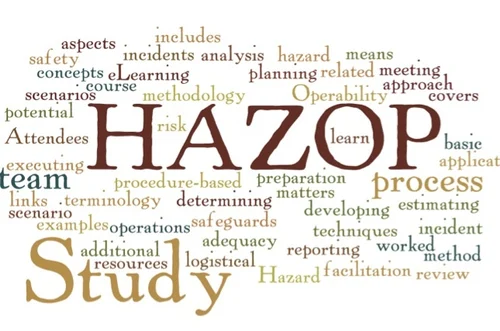How Technology is Changing Hotel Management

The hospitality industry is evolving rapidly, and technology is at the heart of this transformation. Modern hotels are embracing various digital innovations to enhance customer satisfaction, streamline operations, and boost profitability. From artificial intelligence to smart devices, technology is revolutionizing how hotels operate and offer services. This article explores how technology is changing hotel management and how these advancements impact the industry.
Online Booking Systems
One of the most significant changes in hotel management is the rise of online booking platforms. Travelers can now book their accommodations quickly using websites and mobile apps. This has reduced the workload of front desk staff and minimized booking errors. Online platforms allow customers to compare prices, check availability, and choose amenities based on their preferences. Hotels that use advanced booking systems can manage reservations effectively and avoid overbooking issues.
Automated Check-in and Check-out
The traditional check-in process can be time-consuming for both guests and staff. Many hotels now use self-service kiosks and mobile check-in apps to make the process faster and more efficient. Guests can check in using their smartphones or by scanning a QR code at the kiosk. Similarly, check-out procedures have been simplified through automated billing systems, allowing guests to leave without waiting in long queues.
Smart Room Technology
Modern hotels are adopting smart room technologies to enhance guest experiences. Smart devices like voice-activated assistants, smart thermostats, and automated lighting systems allow guests to control room settings effortlessly. For example, guests can adjust room temperature, lighting, and entertainment systems using their smartphones or voice commands. Smart technology not only improves comfort but also helps in energy conservation by optimizing usage.
Artificial Intelligence and Chatbots
Artificial intelligence (AI) is playing a crucial role in improving customer service in hotels. AI-powered chatbots assist guests by answering queries, making reservations, and providing recommendations. These chatbots are available 24/7, ensuring that guests receive assistance at any time. AI systems also analyze customer preferences and behavior to offer personalized services, making each stay more enjoyable.
Cloud-Based Property Management Systems
Hotels are shifting from traditional property management systems to cloud-based solutions. Cloud-based systems offer real-time data access, allowing hotel managers to monitor operations from anywhere. These systems integrate various functions such as room reservations, housekeeping, billing, and inventory management. They also enhance collaboration between different departments, ensuring smooth and efficient operations.
Contactless Payments and Digital Transactions
Contactless payments have gained popularity due to their speed and convenience. Many hotels now offer digital payment options such as mobile wallets, credit cards, and online payment gateways. Contactless payments not only reduce the risk of errors but also ensure secure transactions. Guests prefer these methods as they are faster and more reliable than traditional cash payments.
Data Analytics for Better Decision-Making
Data analytics is transforming hotel management by providing valuable insights into guest preferences, booking trends, and operational performance. By analyzing this data, hotel managers can make informed decisions to improve services and increase revenue. Predictive analytics helps forecast demand, enabling hotels to adjust pricing and optimize resources efficiently.
Virtual Reality (VR) and Augmented Reality (AR)
Virtual and augmented reality technologies are being used to offer immersive experiences to potential guests. Hotels use VR to provide virtual tours of rooms and amenities, allowing guests to explore the property before making a booking. AR enhances in-room experiences by offering interactive information about hotel services and local attractions. These technologies create a more engaging and informative experience for guests.
Improved Housekeeping and Maintenance Management
Technology has also improved housekeeping and maintenance operations in hotels. Housekeeping staff use mobile apps to receive real-time updates on room status and guest requests. Maintenance teams use automated systems to track equipment performance and schedule preventive maintenance, reducing the likelihood of unexpected breakdowns.
Enhanced Security Systems
Security is a top priority for hotels, and modern technology has made it easier to ensure guest safety. Hotels use advanced security systems such as keyless entry, facial recognition, and surveillance cameras to enhance security. Biometric authentication methods also prevent unauthorized access and protect guest information.
Online Reputation Management
Maintaining a positive online reputation is essential for the success of any hotel. Hotels use reputation management software to monitor online reviews, respond to guest feedback, and analyze customer sentiments. This helps hotels address concerns quickly and improve overall guest satisfaction.
Training and Skill Development Through E-Learning
Technology has also improved training and skill development for hotel staff. E-learning platforms provide access to interactive training modules, helping employees enhance their knowledge and skills. This ensures that staff remain updated with the latest industry standards and deliver excellent service.
Importance of Adopting Technology in Hotel Management
Embracing technology is essential for hotels to stay competitive in today’s digital age. By integrating these innovations, hotels can improve efficiency, enhance guest experiences, and increase profitability. Moreover, technology helps in minimizing errors, reducing operational costs, and providing a seamless experience to guests.
Choosing the Right Hotel Management Course
To excel in the evolving hospitality industry, aspiring hotel managers need to stay updated with technological advancements. Enrolling in the Best Hotel Management Courses in Kota can provide students with the necessary knowledge and skills. Institutions like AHA Kota offer comprehensive programs that cover the latest trends and practices in hotel management. These courses equip students to adapt to the dynamic changes in the industry effectively.
Why Opt for a Career in Hotel Management?
A career in hotel management offers diverse opportunities in various sectors, including hotels, resorts, and tourism companies. Pursuing education from the Best Hotel Management College in Kota prepares students to take on challenging roles and excel in their careers. With technology transforming the hospitality industry, hotel management professionals with technical knowledge and expertise are in high demand.







